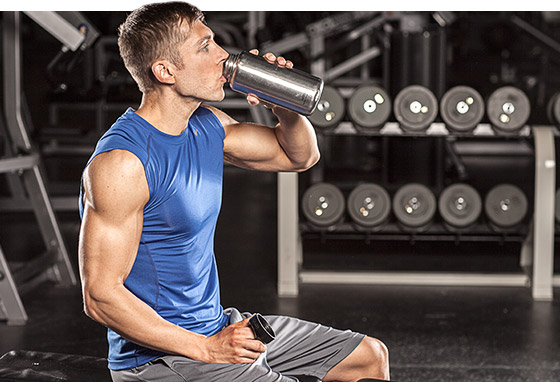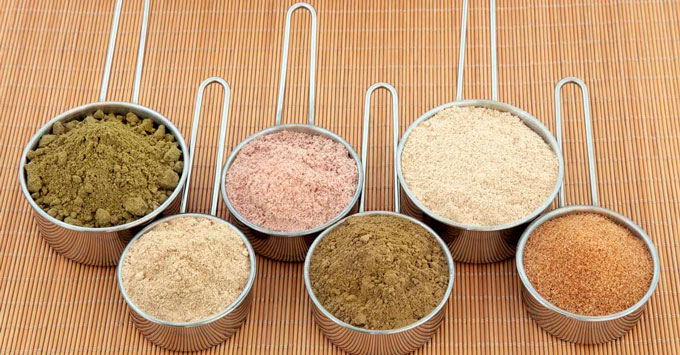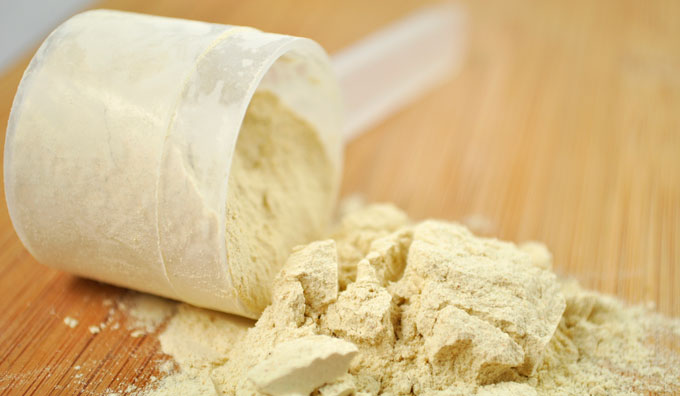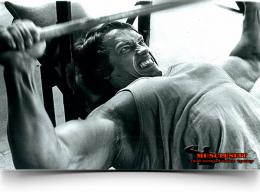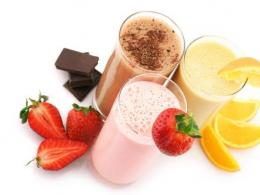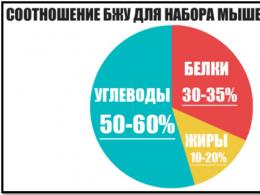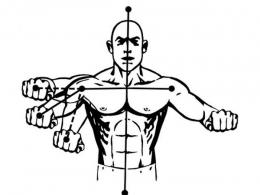What is the best protein for gaining muscle mass? Beginner's Guide.
This article is a concise and concise guide to protein powders, which does not contain unnecessary facts and empty words! After reading it, you will become a real expert and surprise your friends by always answering questions with confidence, which protein is best for gaining muscle mass.
What do you really need to know about protein powders? As a beginner in bodybuilding, of course you want to know the answers to the most important questions. At the end of the article you will find information on which protein is better to choose from domestic and foreign manufacturers.
Are protein powders necessary? Do they really work? How much should be taken? Which to choose? Which one is the best? And finally, how soon will you start attracting the attention of the opposite sex?
This article is not intended for those who want to learn about the features of ion exchange, genetic mutations, isotopically labeled protein indicators ... and all that. This article explains the basics of using protein powders in an accessible way without the hype and confusion that usually accompanies the description of any sports nutrition. By the time you finish this article, you will be a real expert on this subject and surprise your friends on your next trip to the sports nutrition store. No more hours of wandering around the shops!
Is Protein Powder Really Needed to Gain Muscle Mass?
The use of protein supplements is not an absolute requirement for mass gain. It is hardly possible to meet a person who can consume 400 grams of protein per day from a regular diet. If you need to get more than 200 grams of protein per day, use a protein powder - it will make your life much easier.
In addition, protein powders and meal replacement drinks are generally more cost-effective than conventional products. Don't get me wrong, protein powders are still just a dietary supplement. Once again, we emphasize: the focus of any diet should be food. Natural products are preferred because they contain a full range of nutrients that powders do not.
The bulk of dietary protein should come from meat, fish, poultry, and eggs. However, getting all your protein from food isn't always practical or convenient, especially if you have to eat 6 or more times a day to get enough. Note that for optimal results, you should limit your intake of protein shakes to a maximum of three times a day, or 40% of your daily food intake.
Remember that food and nutritional supplements should provide optimal nutrient intake, including the required amount of protein. Most of those reading this article do not have a personal chef at home who would select diet food for you. And don't make the fatal mistake of thinking that protein powders can replace hard training and proper nutrition.
"Remember that food and nutritional supplements should provide optimal nutrient intake, including the required amount of protein."
Do Protein Powders Really Work? Are they harmful to health?
The most frequently asked question is: "Does protein powder actually help me build muscle or is it a scam?" A better question is: "Does the protein really work?". The obvious answer is yes.
Protein is made up of individual "blocks" called amino acids, which perform a variety of functions in the body. For example, they are responsible for the synthesis of muscle fibers and maintaining muscle health while maintaining a diet and constant physical activity.
Protein Functions:
- Participates in the production of red blood cells.
- Supports the immune system.
- Maintains healthy hair, nails and skin.
However, not all protein powders are the same, and it's important to note that not all protein powders are as safe as they say on their packaging. Unfortunately, most protein powders are full of harmful ingredients such as artificial colors, fructose, saccharin, and aspartame. Buy protein powders with natural ingredients, not those that contain chemical sweeteners and other substances that don't promote muscle growth and fat burning.
You are damaging your health when you consume low-quality smoothies with refined and processed carbohydrates (such as brown rice syrup, sucrose, or fructose). Before buying, make sure that the manufacturing company is committed to protecting your health. Unfortunately, the production of lower quality, but cheaper products will continue, because there is a demand for them among bodybuilders. So look for impartial reviews, research the history of the company and its reputation. And only then make a decision!
Another criterion for the quality of a protein product is the ease of preparation. Most protein powders are easy to make into a smoothie, even with the help of a regular spoon. But the testament to true quality is the lack of taste—a necessary sacrifice to keep the powder safe and healthy. Once all artificial chemical sweeteners (aspartame, sucralose) and simple sugars are removed from a product, it loses flavor and can even be bitter.
How to take protein for gaining muscle mass?
How Much Protein Powder Should You Consume?
A better question is, "How much pure protein do I need to achieve this or that?"
Protein is an extremely important macronutrient that needs to be consumed a lot and often throughout the day. The average amount of protein needed is 2 to 3 grams of protein per 500 grams of muscle mass. This means that if you weigh 75 kg and are 10% body fat (75 x 0.10 = 7.5 kg fat, net muscle mass is about 67.5 kg), then you need 135 to 200 grams of protein per day.
Protein powder can be used primarily for making shakes that you drink before, during or after your workout. A liquid food product is preferred at this time because it has a faster absorption rate. Do not substitute protein powder for more than two meals a day. Here's what your typical day might look like:
- First meal (breakfast) – regular food
- Second meal (mid-morning) - liquid protein food
- Third meal (lunch) - regular food
- Fourth Meal (Midday) – Regular Meal
- Meal 5 (Pre and Post Workout) – Liquid Protein Meal
- Meal 6 (Dinner) – Regular Meal
- Seventh meal (before bedtime) - regular food
Which protein to choose for gaining muscle mass?
Before you make your final decision, check out short descriptions to help you sort through the different protein powders.
Whey Protein
Whey protein makes up 20% of milk protein. Whey is an excellent, fast-absorbing protein source with an excellent amino acid profile, high cysteine content, and a blend of peptides. Since it is absorbed very quickly, the best time to consume it is before/during training or immediately after it. It is great for when you need a lot of energy and when your body is in an anabolic state.
Casein
Casein makes up 80% of milk protein. Casein also has an excellent amino acid profile and an excellent blend of peptides, but is slow to digest. Since casein is slowly released into the bloodstream, it should not be used during or after training - at this time you need a "fast" protein. Casein can be used in all other cases.
soy protein
"It's best to avoid soy protein altogether and use the other types of protein listed in the article."Soy protein is the most controversial of all protein types. Fans of soy products believe that soy products have an almost magical effect on the human body. But there is also a large amount of research that shows that soy protein can be harmful in many situations. Because of this confusion, it's best to avoid soy protein altogether and use other proteins instead.
Protein blends
Protein blends are typically a combination of several types of protein, such as a blend of whey protein concentrate, whey protein isolate, egg white, casein, and soy protein. Why is the mixture better? You get a full spectrum of proteins that have varying degrees of absorption. The blend creates an anabolic environment thanks to whey protein and provides an anti-catabolic effect thanks to casein. Use them at any time of the day, but NOT before or after a workout.
Whey hydrolysates
Whey hydrolyzate (also known as hydrolyzed whey protein or peptide blend) are the most "potent" proteins and are the fastest absorbed; this is the best form of protein product as your body prefers peptides over whole protein. Hydrolysates are produced at very low temperatures, under low acid conditions and mild enzymatic filtration (so they are full of essential and branched chain amino acids). They have the potential to promote short-term protein synthesis before and after exercise.
Which is better: whey protein or whey isolate?
Most whey protein powders on the shelves are made from whey protein concentrate mixed with a small amount of whey isolate. In comparison, isolate is more expensive than whey protein concentrate because it is higher quality (more pure) and has a higher biological value. Whey Protein Isolate contains more protein, less fat and less lactose per serving. High-quality isolate contains 90-98% whey protein, while concentrates contain about 70-85% protein. Whey protein isolate contains the highest amount of protein found in milk. Due to its chemical structure, it is most easily absorbed in the gastrointestinal tract.
Obviously, a high concentration protein isolate supplement would be the preferred choice. However, this is a personal decision because isolate is more expensive, and just because it's purer doesn't guarantee that you'll get bigger muscles. It cannot justify the extra cost.
So what's the bottom line? Which to choose?
Pre- and post-workout whey hydrolysate use is likely not enough to affect protein synthesis. As already mentioned, whey isolate is an extremely high quality whey protein. For best anabolism, isolates should only be combined with whey hydrolysates before or after exercise. A small amount of whey concentrates in your diet won't hurt you, but they shouldn't be the number one ingredient.
If you need a powder to support muscle growth and recovery (at any time other than training), use protein blends. You will receive a full spectrum of proteins with different absorption rates. In addition, you will maintain an anabolic state with whey protein, and casein will counteract catabolism.
Which protein is better among domestic producers
When you choose the right nutrition for muscle growth, protein is very important. More precisely, its quantity and amino acid composition. When buying protein for gaining muscle mass, which one is better to say is difficult in terms of muscle growth. Any quality protein is good for this purpose. But which one is better you will know from the video below. You will find out the results of analyzes of domestic proteins: Pureprotein, Rline, RPS, Atech, KingProtein, Geneticlab, Academy T.
Which protein is better among imported manufacturers
Foreign proteins were analyzed here: MyProtein, Dymatize, Arnold, Mex, Universal, San, Ostrovit, Syntrax. All the results are presented in the video, based on the information received, you can conclude which brand of protein is better to buy.
Conclusion
We hope this article has taught you the basics of using protein powders and empowered you to make your own decisions when shopping in sports nutrition stores. Now you can ask the seller for exactly what you are looking for, and not remain indifferent to the banks on the shelves without the advice of a consultant!
Oh yes, protein powder will also help you lose weight and be successful with the opposite sex. But he won't do it in an "ultra short period of time" without appropriate diet and lifestyle adjustments.
According to materials:
http://www.bodybuilding.com/fun/vinced7.htm

